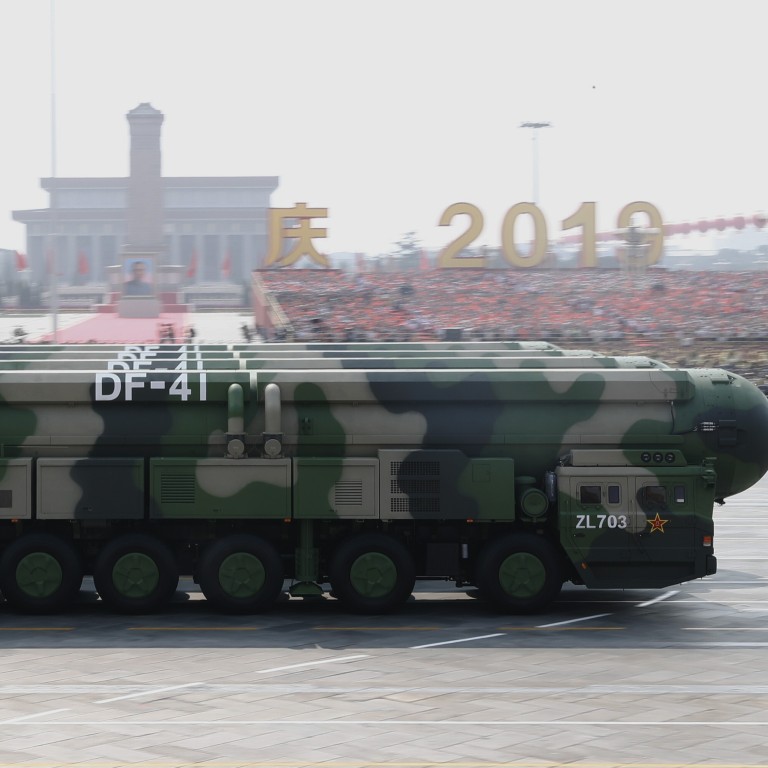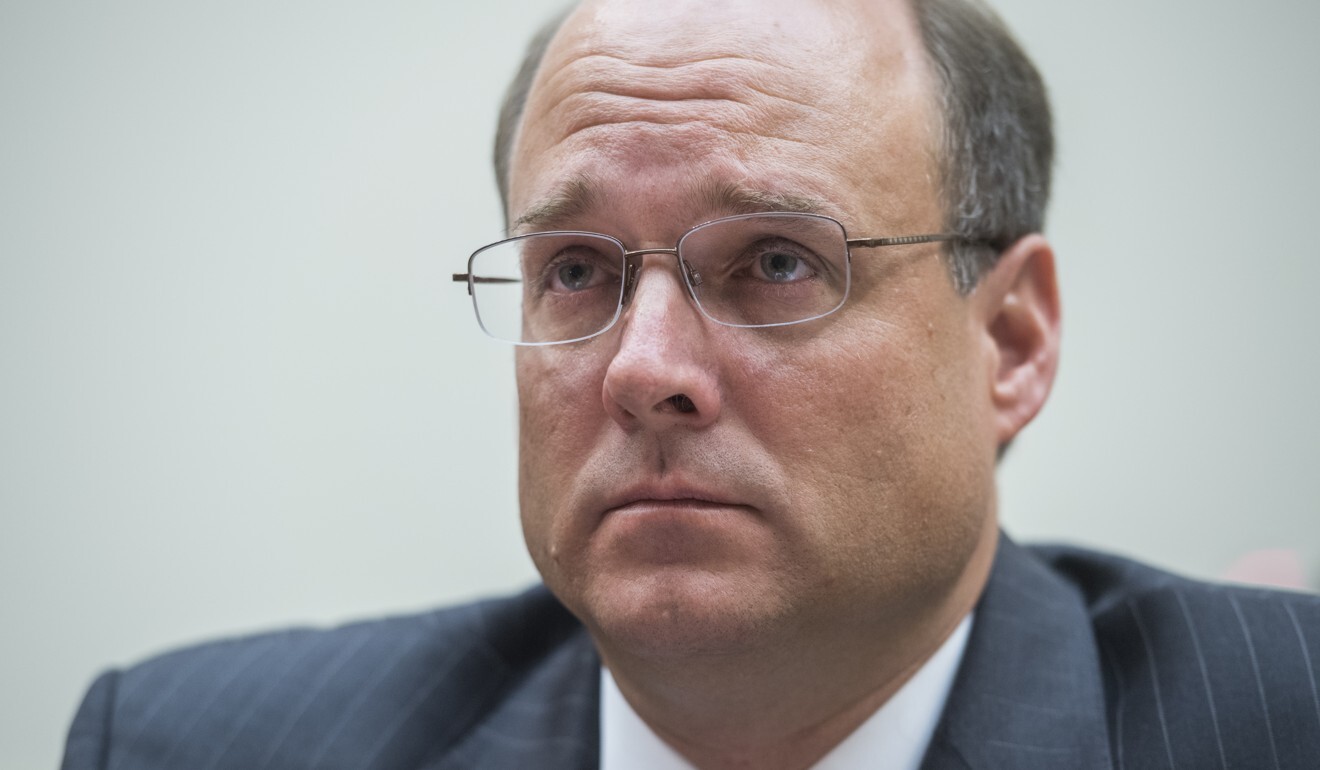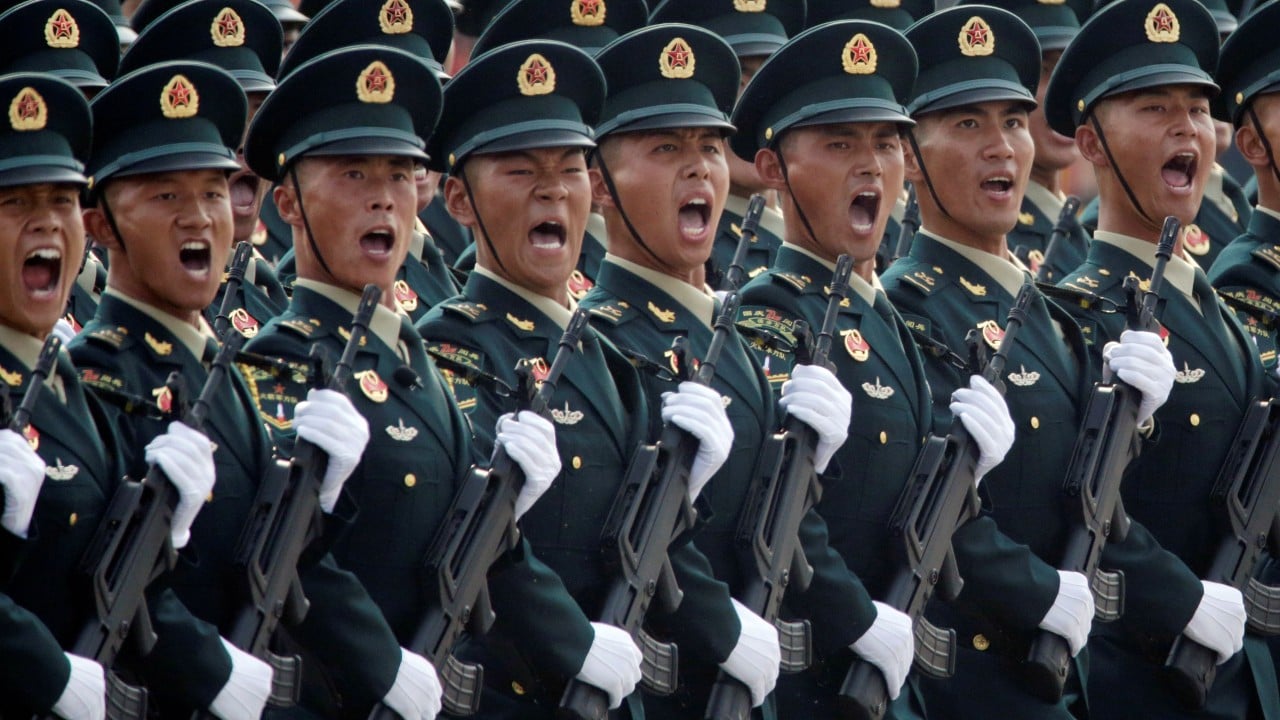
Nuclear arms control may be ‘new battlefield’ in US-China rivalry as Beijing refuses to join treaty talks
- US envoy Marshall Billingslea urges China to reconsider, saying there should be ‘no more Great Wall of Secrecy on its build-up’
- He will meet Russia’s deputy foreign minister later this month to discuss extending New Start pact that expires in February
Nuclear disarmament could become a new front in the deepening rift between China and the United States, after Beijing refused to join talks with Washington and Moscow to extend a key treaty.
US arms control envoy Marshall Billingslea on Wednesday urged Beijing to rethink that decision ahead of the negotiations later this month.
Billingslea will meet Russian deputy foreign minister Sergei Ryabkov in Vienna on June 22 to discuss extending New Start, a nuclear arms reduction treaty negotiated under Barack Obama that will expire in February.
“China just said it has no intention to participate in trilateral negotiations. It should reconsider,” Billingslea tweeted.

As rivalry between Washington and Beijing intensifies, the Donald Trump administration has pushed for China to be brought into a future deal to replace the 2010 New Start accord, arguing that Chinese nuclear and missile capabilities – which are being expanded and modernised – pose a growing threat to the US and its allies. The treaty limits the US and Russia to 1,550 deployed strategic nuclear warheads.
But Beijing has rejected the call. A statement on the foreign ministry website says Washington and Moscow, with the biggest stockpiles of nuclear weapons, have “special and high-priority responsibility for nuclear disarmament”. In December, foreign ministry spokeswoman Hua Chunying said the US was trying to “deflect responsibility onto others”.
China ‘won’t win more respect’ if it expands nuclear arsenal following calls from national media, analyst says
Song Zhongping, a military analyst based in Hong Kong, said China was refusing to be drawn into the talks because its nuclear weapons stockpile was far smaller than those of Russia and the US.
“Until the US and Russia cut their stockpiles to the same level as China’s – or China builds up its nuclear capacity to the same level of the US and Russia – China won’t sit down at the negotiating table with the US and Russia,” Song said.

04:12
Are Xi Jinping’s China and Donald Trump’s US destined for armed conflict?
Trump’s push to involve China in the negotiations could be seen as part of Washington’s efforts to counter Beijing as tensions escalate over areas ranging from trade and technology to security and ideology. But Song said China was unlikely to join the arms control treaty soon.
“This is a new battlefield [in the US-China rivalry] with the United States trying to include China in a US-led international order on nuclear weapons,” Song said. “But China’s nuclear capacity is relatively small, so what China needs to do is boost, not weaken, its nuclear capabilities.”
China may have conducted banned nuclear test blasts, US says
New Start obliges the US and Russia to halve their inventories of strategic nuclear missile launchers and allows for satellite and remote monitoring. It also includes 18 on-site inspections per year to verify that each side is complying, something observers say Beijing may be unwilling to allow.
China, which tested its first nuclear bomb in 1964, is one of five recognised nuclear powers under the Treaty on the Non-Proliferation of Nuclear Weapons. But its nuclear programme is shrouded in secrecy.
China’s nuclear arsenal has been estimated at about 320, according to a new report by the Research Centre for Nuclear Weapons Abolition, Nagasaki University. That is more than France, at 290, but just a fraction of the Russian stockpile of 6,370 and the US arsenal of 5,800 warheads.

